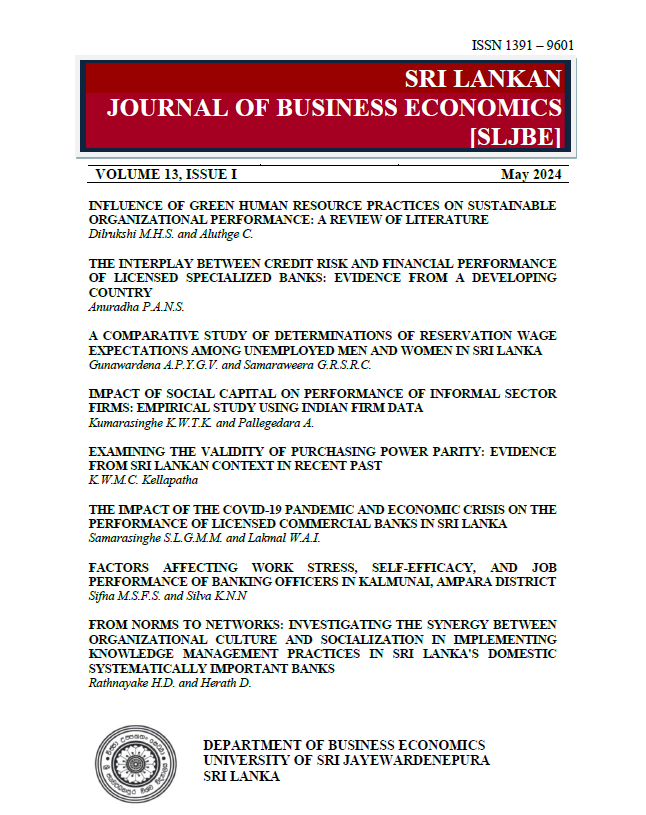FACTORS AFFECTING WORK STRESS, SELF-EFFICACY, AND JOB PERFORMANCE OF BANKING OFFICERS IN KALMUNAI, AMPARA DISTRICT
DOI:
https://doi.org/10.31357/sljbe.v13.7509Abstract
Employee performance is significantly impacted by job stress and self-efficacy which has numerous practical and financial consequences. Self-efficacy is related to job performance, burnout, stress, and role adjustment. Self-efficacy may be regarded as a factor favorably influencing staff morale and, consequently productivity. One of the industries with the most stressful workplaces is the banking sector. Hence, this study aims to investigate how work stress and self-efficacy affect bank workers' performance. Data collection was done using thirty four banking employers in Kalmunai in the Ampara district using a structured questionnaire. Descriptive and non-parametric statistical analysis were used for the data analysis. According to the findings of this research, it can be observed that there is a positive correlation between self-efficacy and job performance and a negative correlation between work stress and job performance of employees. Hence, it can be concluded that self-efficacy has a direct impact on the improvement of job performance in any kind of profession while job stress inhibits job performance. Civil status, work experience, salary level, and number of dependents of bank employees have a high association with work stress and self-efficacy.

